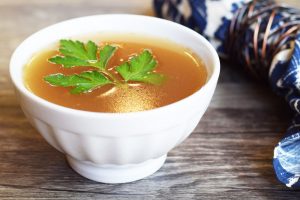
How to Combat IBS
IBS, or Irritable Bowel Syndrome, is a condition that predominantly affects the large intestine and is becoming more frequently diagnosed. IBS occurs in 10-20% of the population in the UK, but prevalence is thought to be higher since many people with the disorder do not seek medical advice. (1)
The exact cause of IBS is unfortunately very puzzling! Some of the drivers of IBS include: a low fiber diet, food allergies, free radicals, nutritional deficiencies, stress, leaky gut, prolonged use of antibiotics, previous traumas or infections, and poor lifestyle choices such as drugs or alcohol.
This chronic condition can lead to poor absorption of nutrients leaving sufferers with low grade inflammation. Additionally, it can affect one’s skin leading to redness, irritation, acne and rosacea.
IBS Symptoms
-Bloating
-Abdominal pain
-Diarrhea
-Constipation
-Mucus in the stools
-Gas
What is the Nuriss approach to support patients with this condition?
We advise a 4R program to help reduce symptoms of IBS.
Remove stress, allergens and pathogens.
Replace stomach acids and digestive enzymes (These are usually low in patients with IBS).
Re-inoculate with a pre and probiotic rich diet. We can also prescribe or recommend an appropriate probiotic to aid the digestive process and keep your gut health and intestinal function strong.
Repair the lining of your gut through good nutrition. This process can take anywhere from 4 weeks to 6 months. In addition to an allergen-free, healthy diet, a variety of foods and supplements can be recommended by your Nuriss nutritionist to help reduce inflammation and support cell growth in your digestive tract.
 One of Nurse Fiona’s favorite foods to help support patients with IBS is organic bone broth. This ancient recipe is rich in minerals and amino acids such as proline and glycine which can help repair intestinal permeability. Her go-to brand of bone broth is Daylesford Organic or Ossa Organic bone broth.
One of Nurse Fiona’s favorite foods to help support patients with IBS is organic bone broth. This ancient recipe is rich in minerals and amino acids such as proline and glycine which can help repair intestinal permeability. Her go-to brand of bone broth is Daylesford Organic or Ossa Organic bone broth.
Beef Bone Broth Recipe
INGREDIENTS:
2–3 kg beef bones, chicken carcasses, lamb bones (usually free from the butchers) or use the saved bones from a roast
2-3kg organic grass fed beef bones or chicken carcasses (usually free from butchers)
4 celery stalks, chopped
2 medium onions, sliced in half lengthwise and quartered
4 garlic cloves, peel on and smashed
1 teaspoon himalayan salt & pepper
2 bay leaves
¼ cup ACV
18-20 cups cold water
DIRECTIONS:
- Place all ingredients in a large pot or slow cooker
- Add water.
- Bring to a boil over high heat; reduce and simmer gently, skimming the fat that rises to the surface occasionally.
- Simmer for 24-48 hours.
- Remove from heat and allow to cool slightly.
- Discard solids and strain remainder in a bowl through a colander. Let stock cool to room temperature, cover and chill.
- Store in glass jars.
- Use within a week or freeze up to 3 months
References
- Faecal calprotectin diagnostic tests for inflammatory disease of the bowel; NICE Diagnostics Guidance (Oct, 2016)
For more information about our treatments, please email enquiries@nuriss.co.uk

